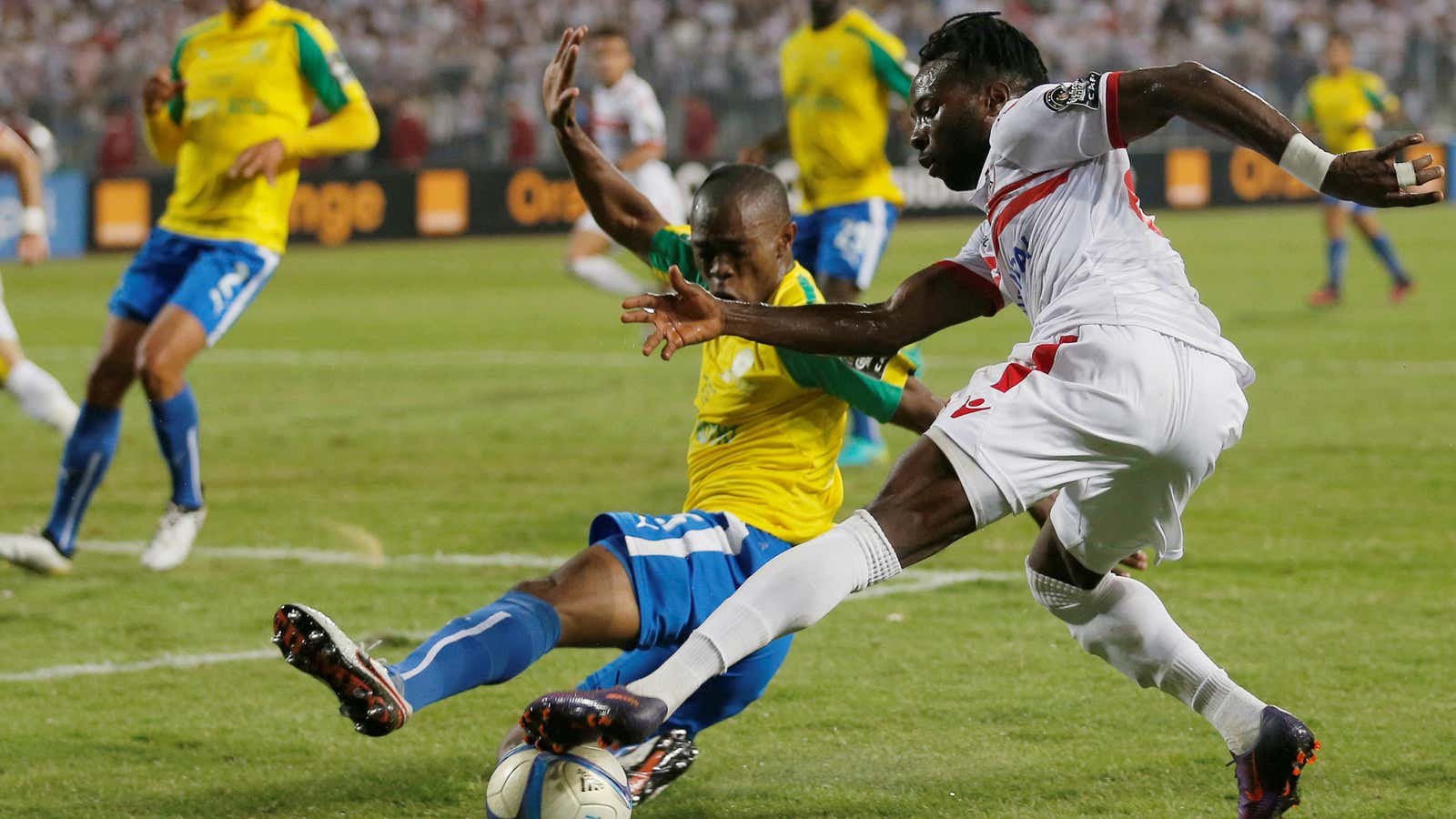Many African youngsters dream of becoming wealthy soccer stars, but as a new report shows, Africa is a hard place to make that dream a reality. The annual employment report by the International Federation of Professional Footballers (FIFPro), a global soccer player union, reveals African-based professional soccer stars often play under dire conditions.
FIFPro’s 2016 Global Employment Report is compiled from responses to anonymous surveys of professional soccer club players across the world.
The union found that delayed pay was a common problem across the 13 African countries surveyed. This issue is most prevalent in Gabon, with 96% of the players reporting overdue pay, “the highest incidence of delayed pay in the world,” according to FIFPro. In Tunisia, 94% of the soccer players also report delayed payments, but FIFPro attributed this to a “dramatic slowdown” in football after terrorist attacks in the country last year. As a result, “several clubs owned by businessmen in the ailing tourism industry are not paying footballers on time,” the report says.
The report says that as a result of the pay issue, players are often susceptible to advances from match-fixing cartels—10% of players surveyed said they were aware of match fixing taking place in their league.
Another common problem is the lack of documented work contracts. In the Democratic Republic of Congo (DRC), 89% of players were found to have no written contracts. And among those who have contracts, 85% were found to have no copy of the documents.
Player safety is a also a concern in the DRC, where 35% of players said they had been threatened by fans, and one in four players reported being the victims of fan violence. Players are often uninsured, and when injured, are often left to fend for themselves and cover their medical bills. In Morocco, Kenya, the DRC, Egypt, Ivory Coast, Namibia and Botswana, 50% or more of players said they were unsatisfied with the medical support provided by their clubs.
The poor conditions have even motivated some players to illegally make their way to Europe, without a club and at great personal risk on by the journey. In Nigeria, home to the Nigerian Professional Football League (NPFL), one of the continent’s most popular leagues, soccer players are regularly owed many months’ pay. With a majority of the top flight clubs owned and run by government, the players’ livelihoods are subject to the whims of state government officials.
Last year, players at Taraba United, a second division club, protested months of unpaid wages by camping and sleeping outside the state governor’s office for days. Last month, Taraba United players were back protesting after going 12 months without pay. As a result of these dire conditions, Nigerian soccer players jump at chances to join European clubs. But it’s not always a fairy-tale ending as their desperation is often exploited by phony agents who swindle them or, worse still, plug them into trafficking rings in Europe.
Former Ivory Coast national team captain Didier Drogba, who played for Europe’s biggest clubs including Chelsea, Galatasaray and Marseille, currently serves as honorary president of FIFPro’s Africa Division, and says he understands the plight of many of Africa’s soccer players. ”In Africa, football is not like other jobs. For many players, it’s their only source of income and it takes up all of their time,” Drogba said in a statement. ”Africa’s professional footballers must be treated as proper employees. Only then will they be able to perform to their best. The continent as a whole stands to gain.”
